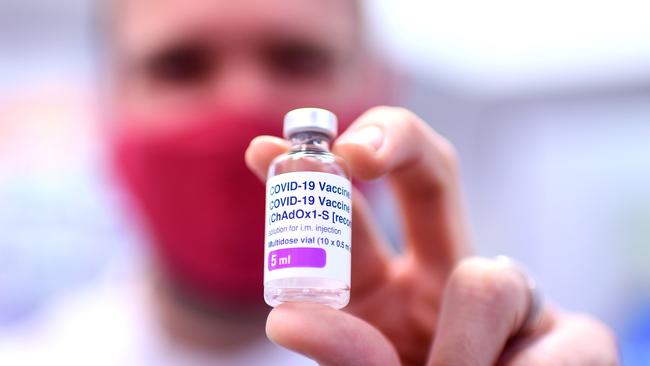Scientists discover cause of rare AstraZeneca clotting
Scientists have found the trigger for extremely rare blood clots associated with the AstraZeneca Covid-19 vaccine.

Scientists have found the trigger for extremely rare blood clots associated with the AstraZeneca Covid-19 vaccine, paving the way for the pharmaceutical giant to tweak the vaccine in the hope of removing the side effect.
A team of British and US scientists believe the clotting occurs when a protein in the blood attracts to a key component of the vaccine, subsequently kicking off an adverse chain reaction in the body’s immune system.
The research, published in scientific journal Science Advances, says that when the vaccine – made up of Covid-19 genetic material – is injected into the muscle, it can leak into the bloodstream and bind together with a protein in the blood named platelet factor four.
In extremely rare cases, scientists believe the immune system confuses platelet factor four for the virus and releases antibodies to attack it, which then clump with the blood protein platelet factor four and trigger the formation of dangerous blood clots.
Cardiff University leading researcher Alan Parker told the BBC the vaccine attracts the blood protein like a magnet.
“What we have is the trigger, but there are a lot of steps that have to happen next,” he said.



To join the conversation, please log in. Don't have an account? Register
Join the conversation, you are commenting as Logout